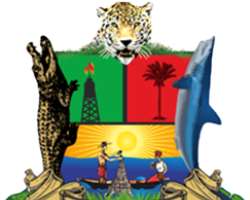BAYELSA: KEEPING THE LOCUSTS IN CHECK

There is no gainsaying the fact that Bayelsa State is the most transparent State in Nigeria. Transparency is a means to strengthening governance. It is the taproot of good governance ostensibly higher than accountability, responsiveness, efficiency criterion and other components of good governance. Every healthy democracy can be summarized in three essential elements: transparency, accountability, and equality. Transparency denotes free access to governmental political and economic activities and decisions. It is easily identified as the taproot of good governance. In Nigeria, the push for transparency has been underscored by the Freedom of Information Act was passed a couple of years ago. Across time and space the call for transparency by citizens especially through summoning their governments to reveal their incomes and expenditures has assumed momentum. This in fulfillment of the mandate principle and to articulate government developmental policies and programmes.
The Lima Declaration is avers that the principles of transparency and accountability are essential prerequisites in a democratic government. The notion of transparency refers to the communication of timely, reliable, clear and relevant public reporting on its status, mandate, strategy, activities, financial management, operations and performance. In democratic governance, it includes the obligation of government to report how resources are received and spent and the extent to which governmental powers are used based on the social contract.
Ostensibly, because of the prime position of transparency in good governance, some global efforts have been made at different times. Augustin Carsten, Deputy Managing Director, International Monetary fund avers that an adequate transparency and accountability are critical for ensuring that resource wealth is managed for the benefit of the whole population. Transparency in oil sector operations allows democratic debate on how oil wealth should be handled.
The first is the IMF's new Guide on Resource Revenue Transparency. This guide is part of the IMF's framework on best practices in fiscal transparency. Within that overall framework, it was recognized that resource revenue management presented a unique set of problems for all countries which derive significant revenue from natural resources.
The second international development is the Extractive Industries Transparency Initiative, commonly referred to by its acronym "EITI." Launched in September 2002, the EITI encourages governments, companies, international organizations, and other interested parties to work together to develop a framework to promote transparency in payments and revenues arising from extractive natural resources. A major component of the initiative is the publication of, on the one hand, payments by companies to governments and, on the other hand, payments received from companies by governments. Discrepancies between the two would suggest possible irregularities.
Third, the Group of Eight countries (G8) has also started a broader transparency and anti-corruption initiative. In June 2003, the G8 issued a declaration on "Fighting Corruption and Improving Transparency." Among other things, the declaration encouraged countries to volunteer for fiscal transparency assessments by the IMF and to publish the results of such assessments.
Fourth, and very importantly, there are also multilateral initiatives in Africa itself. These include aspects of the New Partnership for Africa's Development (NEPAD), with its emphasis on good governance and accountability. Together, these initiatives demonstrate the firm commitment of the international community to promoting good practices in these areas.
Since inception, the Governor Seriake Dickson several steps entrench transparency. Transparency is the introduction of periodic verification of Staff to clean up the Vouchers and weed out “ghost names”. The administration carried out a verification exercise in 2012 and this resulted in the reduction of the wage bill. The exercise also exposed persons who were entered the Civil Service through the backdoor. On the renewal of the Governor’s mandate in 2016, another bout of the verification exercise was been carried out to keep our payrolls clean. So many States emulated the Bayelsa example. This time around, government has also established a Special Tribunal for Payroll Fraud offenders. To ensure that the exercise was thorough, it was conducted at both State and Local Government Levels including pensioners. This was to ascertain the accurate staff strength in the mainstream Civil Service, the Local Government Councils, government agencies and pensioners.
So far, the exercise has yielded enormous dividends. The wage bill has been cut to size. The Ghost Workers syndrome has been exorcised from the system. The vouchers have been cleaned-up, thereby creating room for government to identify areas of critical manpower shortage for future recruitment. Government now has a robust database for planning and decision making. Government has also identified areas to strengthen to ensure that loopholes are not created for payroll syndicates to take advantage of. The exercise has also enabled us prepare our ICT infrastructure to check fraud.
